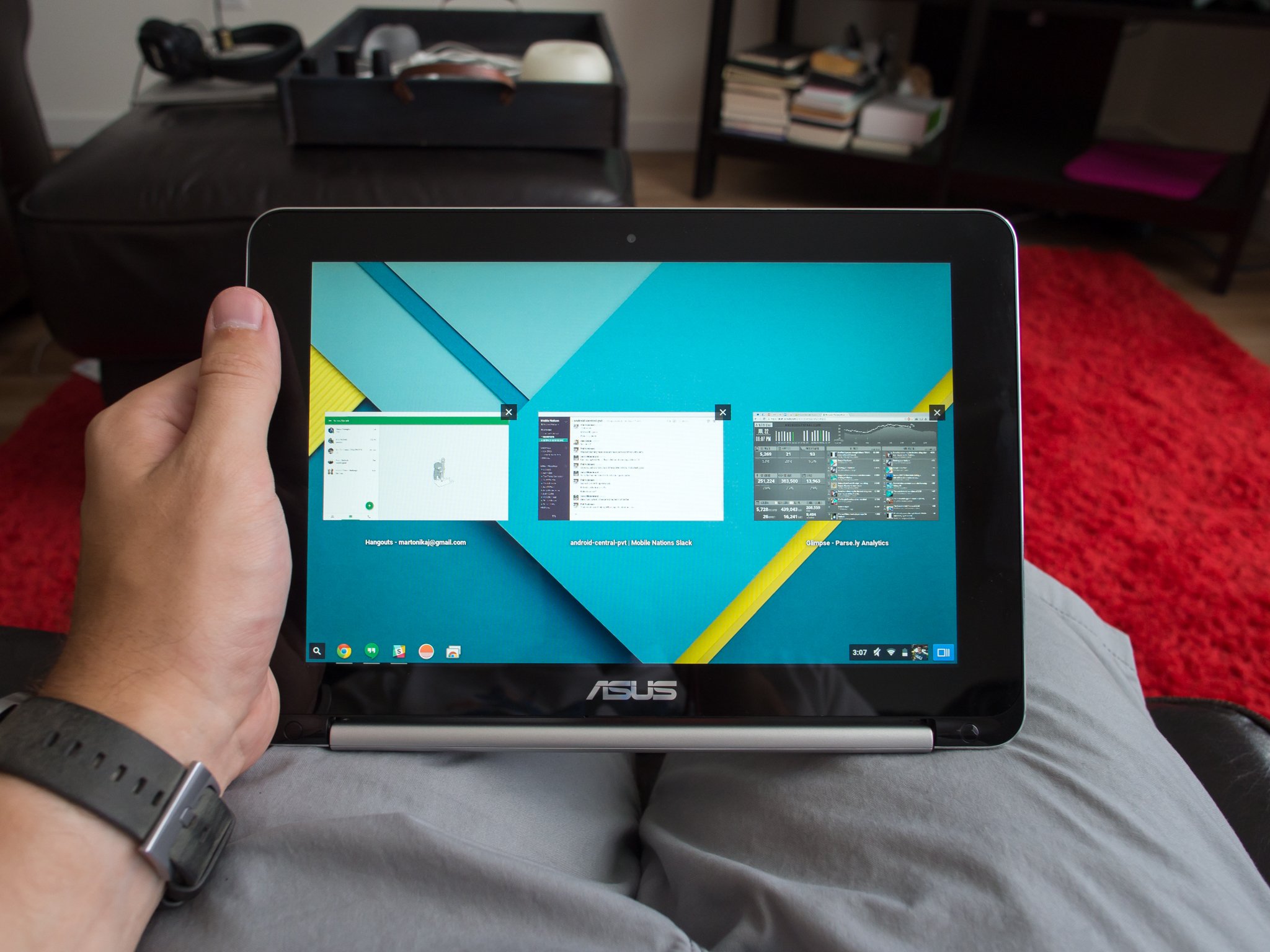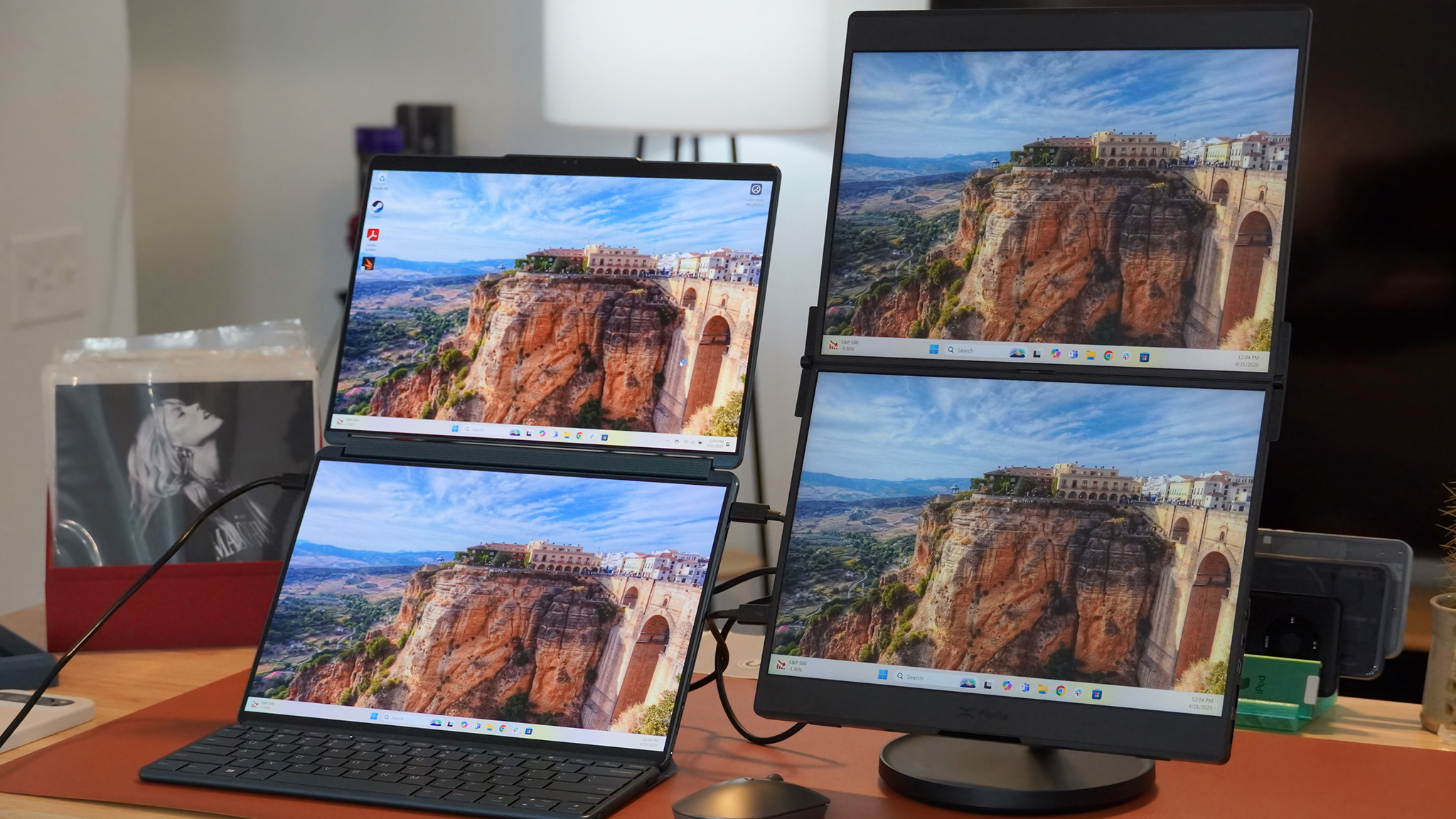Google needs to build a Chrome tablet

Many people reading this will have paid at least a passing interest to Apple's WWDC 2017 announcements. Among all the hyperbole and salesmanship in the keynote address there was one thing that became clear: the iPad is closer than ever to the only "computer" most of us need. Apple is serious about making a tablet that's productive but simple to use, and this is going to evolve into the standard for regular consumers. At least Apple thinks so, and it's probably right.
That means Google needs to get on board and help define the future of this new-but-not-really-new thing. The good news is that it has a helluva head start with Chrome OS.
The software on a Chromebook is a good starting point for a next generation operating system.
A lot of people will disagree, but chances are a decent Chromebook is the only computer you need. Sure, content creators will need something with extra horsepower and the software tools to work with, but for the computer you buy for goofing around at home or doing your school work a Chromebook will probably work out fine. Hell, I spend most of my work week in front of one because I have everything I need and it's set up the way I like it. Chromebooks are great for the now but need some adjustment to be ready for the future.
Chrome already works on a tablet. Mostly. We know this because so many Chromebooks can be flipped around and turned into one. I still think my little Chromebook Flip is the best Android tablet you can buy because it has every app you need from Google Play and a real web browser. But it's thick and clunky to use as a tablet and some of the Chrome apps don't work as well with a touch interface as they need to. And let's be honest, the display isn't on par with a good tablet from Samsung or even the Pixel C. But the core experiences — a touch interface that works and an on-display keyboard — are in place and usable.
It's easy to take what we have now in the Chromebook Flip (or any other convertible Chromebook) and turn it into something better. We know it's easy because Microsoft and Apple are doing it and a device that attaches to a keyboard isn't a new idea. The Transformer series of tablets from ASUS is a great example of that. Hardware isn't an issue, though money probably is.
The company who can build a good Chrome tablet needs to be able to lose money on it. That means Google.
A good tablet isn't cheap to build, and that makes it expensive when it gets put on a shelf. The Galaxy Tab S3 or the latest iPad isn't priced the way it is just because. And, to be honest, people who will be willing to adopt a "new way to computer" aren't going to be satisfied with anything less. A good great 10-inch display with a high resolution, a decent processor and enough memory to hold a bunch of apps and web apps, and at least 128GBs worth of storage, is the minimum for a device that's supposed to make us all give up our real laptops. And make sure it has a decent keyboard and a sturdy way to attach it.
Samsung's not going to build this. It shouldn't because Android on a tablet isn't good enough to justify the price, but Chrome might be. At least when the Android runtimes are sorted and Android 8.0 becomes a thing and applications work better than they do now. The software needs to be sorted before it makes any sense to build an expensive Chrome tablet. That means Google needs to build it so there is real hardware to use when sorting out the new software.
Be an expert in 5 minutes
Get the latest news from Android Central, your trusted companion in the world of Android
It turns out that developers weren't willing to spend the time and money to make tablet apps for Android.
Google can afford to be that loss leader for a "new" hardware category. It's done it numerous times and tried to do it for Android tablets. While it worked for Android TV or Android Wear (mostly) it failed for the tablet because of the software. Developers don't have to do anything for their app to work on a tablet, but there's a difference between just working and working well. Making a great tablet app takes extra time and money that few companies are willing to invest. It's hard enough to make money with an app for a phone, let alone spending more to build an interface for a much smaller tablet market. It seems like Google expected developers to just do it, and it was wrong.
That's why Google now has to try and fix it. On a 10-inch screen, multiple apps doing their thing at the same time is pretty standard. Android 7 introduced new ways for developers to make things better in this situation, and Android 8 is going to help us use apps that weren't updated. Things won't be perfect, but they will be better and help the people making new apps see what they can do to cover both the small screen on a phone and the big screen on a tablet. Since Android apps run native in Chrome, everything a developer does also will apply here.
I still think we'll eventually see a single OS from Google that scales with the display and type of user input. You can call that Andromeda or Fuchsia or whatever you like. But to get there, Google needs to get started now so developers can be ready. With a Chrome tablet, we all can get started and whatever the future of Google's operating systems is, it will be better because developers are ready for it, too.

Jerry is an amateur woodworker and struggling shade tree mechanic. There's nothing he can't take apart, but many things he can't reassemble. You'll find him writing and speaking his loud opinion on Android Central and occasionally on Threads.
